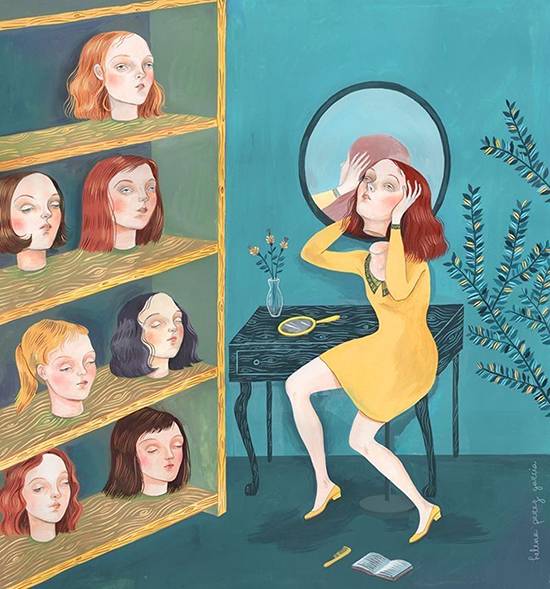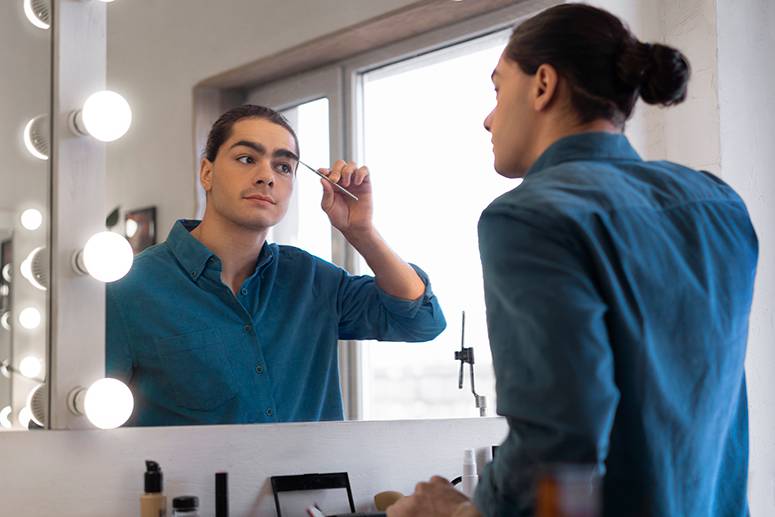Facial discrimination
They say beauty is in the eye of the beholder, but let’s be real—some people just behold a little more favorably when the subject has a symmetrical face and good bone structure. Welcome to the world of facial discrimination!
It’s a harsh world where physical attractiveness can trump talent, experience, and sometimes even basic competency. We want to believe we’re rational, objective creatures who judge others based on skill, merit and “inner beauty,” but science, including real-life proof, suggests otherwise.
We see it every day, on socmed and in (gasp!) newspapers: want ads for positions ranging from the pits of organizational structure to high-level executive positions professional headhunters salivate over. They’re almost always looking for long experience, impeccable credentials, and a proven track record of success. Hopeful unemployed (or disgruntled) folks send in their applications, complete with their CVs and, of course, photographs.

Let’s say, among the finalists, Candidate A is almost overqualified, with two decades of relevant experience, and looks as wrinkly as prune, while Candidate B has “adequate” academic achievements and had been job-hopping for six years but resembles someone who just walked off a K-drama set. Guess who gets the job?
If you answered Candidate A, congratulations on your optimism! Research suggests that attractiveness can influence hiring decisions, promotions, and even salary levels. Studies have shown that good-looking individuals are perceived as abler, more likable and trustworthy, even when their actual abilities suggest otherwise. It’s like the world is programmed with its own unfair Instagram filter.
In reality, the selection process in most enterprises is imbued with the secret shame of facial discrimination, a term of undetermined origin that has gained popularity in recent times, especially in discussions about workplace bias, AI facial recognition, and beauty privilege. It has been used in different settings to describe unfair treatment based on physical appearance rather than merit or character.

This phenomenon isn’t new. Remember Elle Woods in Legally Blonde? No one took her seriously because she was too pretty and too blonde —until she proved them wrong with a sassy mix of intellect and fashion. However, if Elle had been a gaunt and average-looking law intern, her journey might have taken a different turn.
Hollywood, in general, is a great case study in lookism. Some roles call for an actor to play a hideous or an average-looking person, only for the casting director to pick a beauty who is “uglified” with top-notch prosthetics and makeup (Charlize Theron in Monster) or a simple pair of glasses (Anne Hathaway in The Princess Diaries).
Korean rom-com She Was Pretty (which my wife and I have watched a few times) perfectly illustrates the “inner beauty” trope. Kim Hye-jin (Hwang Jung-eum) and Ji Sung-joon (Park Seo-joon) were childhood friends, but time had flipped their fortunes. Once a beautiful girl, Hye-jin grew up with frizzy hair, flushed skin, and low confidence, while Sung-joon, formerly an overweight outcast, returned from the US as a tall, chiseled executive of a fashion magazine—where, unbeknownst to him, Hye-jin worked as an intern.
Panicked that her first love wouldn’t recognize her, she asked her stunning best friend Ha-ri (Go Joon-hee) to pose as “Hye-jin” for their reunion. Little did she know, this small lie would spiral into a workplace comedy of errors, mistaken identities, and a sharp critique of how familiarity, talent, and even destiny can mean little in the face of, well, a beautiful face.

The bias extends beyond the silver screen. Politics, for example, has a long history of favoring the photogenic. Studies suggest that Richard Nixon, who looked sweaty and uncomfortable on TV, lost to John F. Kennedy in 1960 simply because he lacked JFK’s polished, charismatic good looks. Even in modern times, candidates who are taller, have better jawlines, or simply “look the part” tend to gain an edge. Would Justin Trudeau have enjoyed three terms as Canadian Prime Minister if he didn’t have millions of followers across different social media platforms? Just asking.
And then there’s the music industry, where talent used to reign supreme but now often takes a backseat to aesthetics. The K-pop industry is noted not only for its demanding pace but also for its rigorous beauty standards. Good looks can even lead to a second career as an actor post-K-pop.
Meanwhile, reality show The Voice markets itself as a purely talent-based competition, with blind auditions ensuring that only the voice matters—at first. But once the live shows begin, the power shifts to the viewers, who often prove that charisma, stage presence, and yes, good looks, can be just as persuasive as raw vocal talent.
Even on a smaller scale, everyday life is riddled with examples of facial discrimination. Have you ever noticed that good-looking people get better customer service, or how they can talk their way out of a speeding ticket more easily than mere mortals? There’s also the frustrating case of the “talikod-genic”—someone who looks stunning from behind but less so from the front. It’s the ultimate catfish situation, and yet, even they sometimes get preferential treatment before turning around and breaking the illusion.
It’s not hopeless. If you weren’t born with K-drama star genetics or the bone structure of a Greek statue, don’t worry.

First, work on what you can control. Confidence, charisma, and good communication skills can take you farther than you think. People are drawn to those who are comfortable with themselves, and a strong presence can sometimes outshine physical appeal. Even the most attractive person in the room loses appeal if he or she has the personality of a wet sock.
Second, cultivate real skills. While good looks may open doors, they won’t keep them open forever. The entertainment industry is full of once-gorgeous stars who’ve faded into obscurity because they didn’t hone their craft. Meanwhile, the Meryl Streeps and Harrison Fords of the world keep thriving because their talent speaks louder than their wrinkles.
Third, build your personal brand. In a world where social media plays kingmaker, having a unique identity can be a game-changer. Quirky, smart and interesting personalities can generate buzz just as much as traditional beauty—just ask Sabrina Carpenter or Anya Taylor-Joy.
Finally, remember that real success is about more than just looking good. It’s about what you do, how you make people feel, and the impact you leave behind. So, yes, while the world may initially favor the pretty, it ultimately rewards the persistent. Attractiveness fades, but substance endures.
And if all else fails, just take comfort in the fact that one of the most universally loved figures in pop culture is a short green alien who speaks gibberish. If Grogu (a.k.a. Baby Yoda) can win the world over without abs, so can you.


